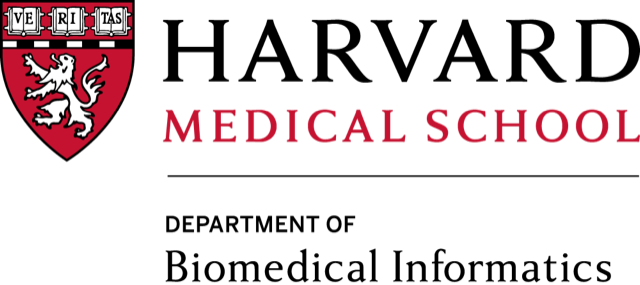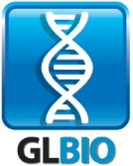- Ian Lawson Van Toch Memorial Award for Outstanding Student Paper
- RCSB PDB Poster Prize
- Special Session Systems Immunology: Janssen Awards
- 3DSIG COSI – Best Talk Awards
- Bio-Ontologies COSI – Best Talk Award
- Bio-Ontologies COSI – Best Poster Award
- BioVis COSI – Best Poster Award
- CAMDA COSI – Best Talk Awards
- CAMDA COSI – Best Poster Award
- CompMS COSI – Best Talk Awards
- CompMS COSI – Best Poster Award
- EvolCompGen COSI - Best Talk Award
- EvolCompGen COSI - Best Poster Award
- EvolCompGen COSI – Poster Special Mentions
- General Computational Biology – Best Poster Award
- HitSeq COSI - Best Talk Award
- iRNA COSI – Best Poster Award
- NetBio COSI – Best Talk Award
- NetBio COSI – Best Poster Award
- SysMod COSI - Best Poster Awards
- TransMed COSI Best Oral Presentation Awards
- TransMed COSI Best Poster Awards
Yannik Schälte, Helmholtz Zentrum München, Germany
Efficient Exact Inference for Dynamical Systems with Noisy Measurements using Sequential Approximate Bayesian Computation
With Support From:

 Aya Narunsky, Yale University, United States
Aya Narunsky, Yale University, United States
How proteins evolved to recognize an ancient nucleotide?
First Prize: Benjamin Meckiff, La Jolla Institute for Immunology, United States
Single-cell transcriptomic analysis of SARS-CoV-2 reactive CD4+ T cells
Second Prize: Nathan Lawlor, The Jackson Laboratory, United States
Dissecting the heterogeneity of protein and transcriptional responses in human blood derived immune cells after T- and monocyte-specific activation
First Prize Sd Lam, Universiti Kebangsaan, Malaysia
SARS-CoV-2 spike protein predicted to bind strongly to host receptor protein orthologues from mammals, but not fish, birds or reptiles
Second Prize Katrin Schöning-Stierand, Universität Hamburg - Center for Bioinformatics (ZBH), Germany
Runar Reve, King Abdullah University Of Science and Technology, Saudi Arabia
Applying GWAS on UK Biobank by using enhanced phenotype information based on Ontology-Wide Association Study
Toshiyuki T. Yokoyama, The University of Tokyo, Japan
Simon Heumos, Quantitative Biology Center (QBiC) Tübingen, University of Tübingen, Germany
Semantic Variation Graphs: Ontologies for Pangenome Graphs
Kari Lavikka, University of Helsinki, Finland
Grammar-Based Interactive Genome Visualization
First Prize: Cory Gardner, Saint Louis University, United States
Metagenomic Data Analysis with Probability-Based Reduced Dataset Representation
Second Prize: Carlos Loucera, Clinical Bioinformatics Area (FPS), Spain
Towards a metagenomics interpretable model for understanding the transition from adenoma to colorectal cancer
Third Prize: Maria Peña-Chilet, CIBERER, Spain
Mechanistic models of CMap drug perturbation functional profiles
Proteomics Matthew The, KTH Stockholm, Sweden
Focus on the spectra that matter by clustering of quantification data in shotgun proteomics
Metabolomics Kai Dührkop, Friedrich-Schiller-University Jena, Germany
Classes for the masses: Systematic classification of unknowns using fragmentation spectra
Proteomics Steven Eschrich, H. Lee Moffitt Cancer Center and Research Institute, United States
Artificial Intelligence-Based TMT Experiment Planning Tool
Metabolomics Joe Wandy, University of Glasgow, United Kingdom
Advancing fragmentation strategies development in LC-MS metabolomics
Avital Sharir-Ivry, McGill University, Israel
On quantifying evolutionary importance of protein sites: A tale of two measures
Linda K. Sundermann, University of Toronto, Canada
Reconstructing Tumor Evolutionary Histories and Clone Trees in Polynomial-time with SubMARine
Xuecong Fu, Carnegie Mellon University, United States
Joint clustering of single cell sequencing and fluorescent in situ hybridization data to infer tumor copy number phylogenies
Karn Jongnarangsin, Michigan State University, United States
A Pangenome and Comparative Pathogenomics Workflow for Bacterial Pathogens
Gurmeet Kaur, NCBI, NIH, United States
Highly-regulated and diverse NTP-based biological conflict systems with implications for emergence of multicellularity
Samuel Chen, Michigan State University, United States
A Computational Molecular Evolutionary Approach to Characterize Bacterial Proteins
Robin Aguilar, University of Washington Department of Genome Sciences, United States
Tigerfish: A Software Tool to Design Genome-Scale Oligonucleotide Hybridization Probes to Visualize Satellite DNA
Ying Chen, Genome Institute of Singapore, Singapore
Reference-guided transcript discovery and quantification for long read RNA-Seq data
Torsten Gross, IRI Life Sciences, Humboldt University, Berlin, Germany Identifiability and experimental design in perturbation studies
Ina Maria Deutschmann, Institute of Marine Sciences (ICM-CSIC), Spain
Dynamic Microbial Association Networks in the Ocean
First Prize: Chaitra Sarathy, Maastricht University, Netherlands
Identifying characteristic features of metabolic states using Genome-Scale Metabolic Models
Second Prize: Narasimhan Balakrishnan, Northwestern University, United States Model reduction and optimal control for multicellular biological oscillator systems
Third Prize: Aurelien Pelissier, IBM Research, Switzerland Computational model reveals a stochastic mechanism behind germinal center clonal bursts
First Prize (tie): Ahmed Metwally, Stanford University, United States
Longitudinal multi-omics profiling reveals two biological seasonal patterns in California
First Prize (tie): Jannis Born, ETH Zurich, Switzerland POCOVID-Net: Automatic Detection of COVID-19 From a New Lung Ultrasound Imaging Dataset (POCUS)
Third Prize: Yu-Chiao Chiu, University of Texas Health Science Center at San Antonio, United States A deep transfer learning model for extending in vitro CRISPR-Cas9 viability screens to tumors
First Prize: Jonas Béal, Institut Curie, Paris, France
Emulating clinical trials for precision medicine with causal inference: application to PDX data
Second Prize: Jasleen Kaur Grewal, Canada's Michael Smith Genome Sciences Centre, Vancouver, British Columbia, Canada Single-sample pathway analysis using Pathway Impact Evaluation (PIE) of machine-learning based cancer classifiers
Third Prize: Murih Pusparum, Hasselt University & Flemish Institute for Technological Research (VITO), From Population to Subject-Specific Reference Intervals





